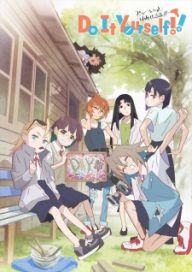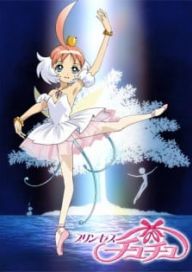Here's how I rate anime (It's mostly on vibes, but it's consistent):
10:
High quality anime that had some level emotional significance to me.
9:
10 score anime that lacked something to be at 10, usually because of a sum of very small flaws.
8:
Usually the best of the season will end up here. The difference between an 8, a 9 and a ten are regard the level of impact they had on me and their amount "little flaws".
7:
"Average-Good", when flaws begin to weight a little more, but I still like it. Often here will be 8-9/10 anime that screwed up at some point or just anime that weren't impactful enough to earn a higher score.
6:
Anime with a lot of flaws, but that has something of value that shouldn't be overlooked.
5:
An inoffensive "meh". Masterpieces when compared to things scored 1-5, but bad when compared to stuff 5-10.
4:
Bad, but not THAT bad and it still has some redeeming quality somewhere.
3:
Worse than a 4, but not as bad as a 2.
2:
Very bad, but didn't offend me as much as a 1.
1:
So bad it personally offended me.
Statistics
Anime History Last Anime Updates
All Manga Stats Manga Stats
- Total Entries39
- Reread2
- Chapters1,872
- Volumes125
















































All Comments (67) Comments
You slipped up there, didn't you? :P
Control those anger issues....please :*
Got scared and deleted the sexism?
Awwww :*
Think about your proneness to using quotations marks. If there was a word that expressed clearly what you want to express, you would use that word; but if there is no word, you use a different word and put it between quotation marks to indicate that you mean something different from what the word usually means (a sort of warning that warns the reader not to interpret the word mechanically, automatically, but to stop and reflect), hoping that the context will render the meaning clear. And since language is not only something we use externally and with others, but also something that we use in our own internal thought-stream, that inadequacy of language also renders our thoughts inadequate. At the end of the day, we are children of our epoch; there is a tension between us as historically conditioned by the prevailing modes of thought and perception, and us as universally striving to transcend that limitation.
Have you ever thought about reading about psychology? Given your penchant for introspection, it seems something you could read naturally and without straining yourself. For example, psychological typology. It is a double-edged sword, as there abounds superficial interest in typing oneself and others, but it is undeniable that there is also truth in it. I was thinking of Carl Jung’s Psychological Types. Jung has the advantage that he was immersed in the cultural and intellectual tradition and had not fallen victim to the atomization of sciences that was already well under way even then. The book as a whole presupposes certain knowledge, but even if you don’t understand everything (which, I dare say, is impossible), you can still read it, and in fact part of the knowledge it presupposes you can learn through it. If this proves difficult, you can just read Chapter 10, which deals with the typology proper and is of easier digestion. He was a stepping stone for a self-taught illiterate like me.
acho que tu pode cumprir esse papel